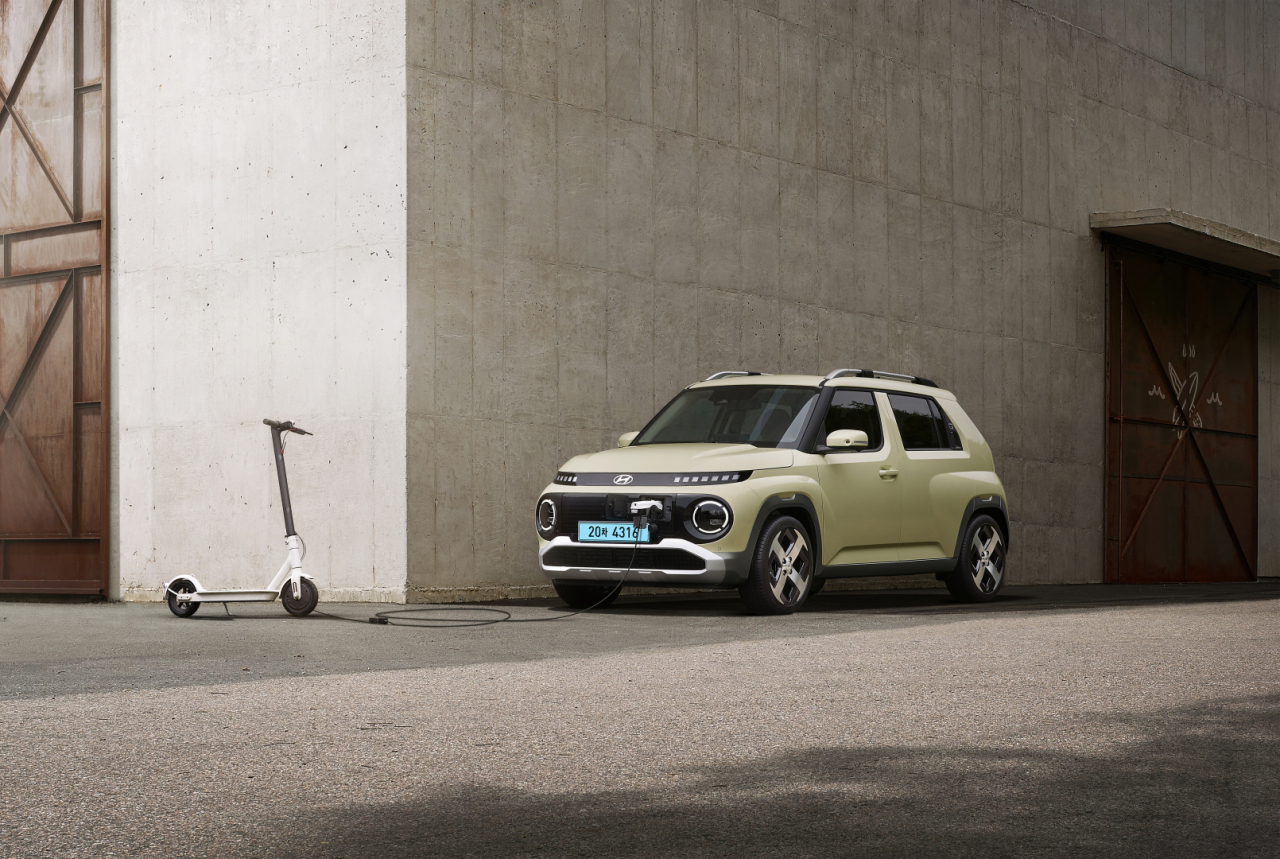 |
The new Casper Electric (Hyundai Motor Group) |
Hyundai Motor plans to bring its Casper Electric mini SUV to Europe later this year and Japan in early 2025, following robust domestic sales.
The company reported Sunday that it sold 28,784 units of the Casper -- both gasoline and electric versions -- in the Korean market from January to August this year, marking a 1.4 percent increase from the same period last year.
Total Casper sales surged in August, with 5,031 units sold -- making it the first month in 2024 to break the 5,000 mark. The boost was largely thanks to the introduction of the Casper Electric in July, which accounted for 1,439 units in August alone, alongside 3,592 gasoline models.
If Hyundai can sustain this monthly sales pace above 5,000 units, the automaker is on track to surpass its 2022 record of 48,200 units sold.
The Casper Electric will be exported to over 50 countries, with Europe getting it first later this year under the localized brand name Inster. Japan will follow in the first quarter of 2025. Hyundai expects strong international demand, particularly in Europe and Japan, where the narrow streets and limited parking space favor compact, city-friendly electric vehicles like the Casper.
To meet the expected demand, Gwangju Global Motors -- the plant that produces the Casper -- has increased its production target for the electric model by 40 percent, from 17,400 to 23,000 units by the end of this year. GGM, a joint venture between Hyundai and the Gwangju city government, was launched in 2021 to spur job creation in Korea’s southwestern region and is Korea’s first new auto plant in over two decades.
The Casper Electric boasts a 315-kilometer range, significantly more than the 205 km offered by competitors like the Kia Ray EV. It also has a 2,580-millimeter wheelbase, 180 mm longer than the gasoline version, offering more interior space. The Casper Electric debuted at the 2024 Busan International Mobility Show in June and uses battery cells from HLI Green Power, a joint venture between Hyundai and LG Energy Solutions.





![[Herald Interview] How Gopizza got big in India](http://res.heraldm.com/phpwas/restmb_idxmake.php?idx=644&simg=/content/image/2024/11/20/20241120050057_0.jpg)

